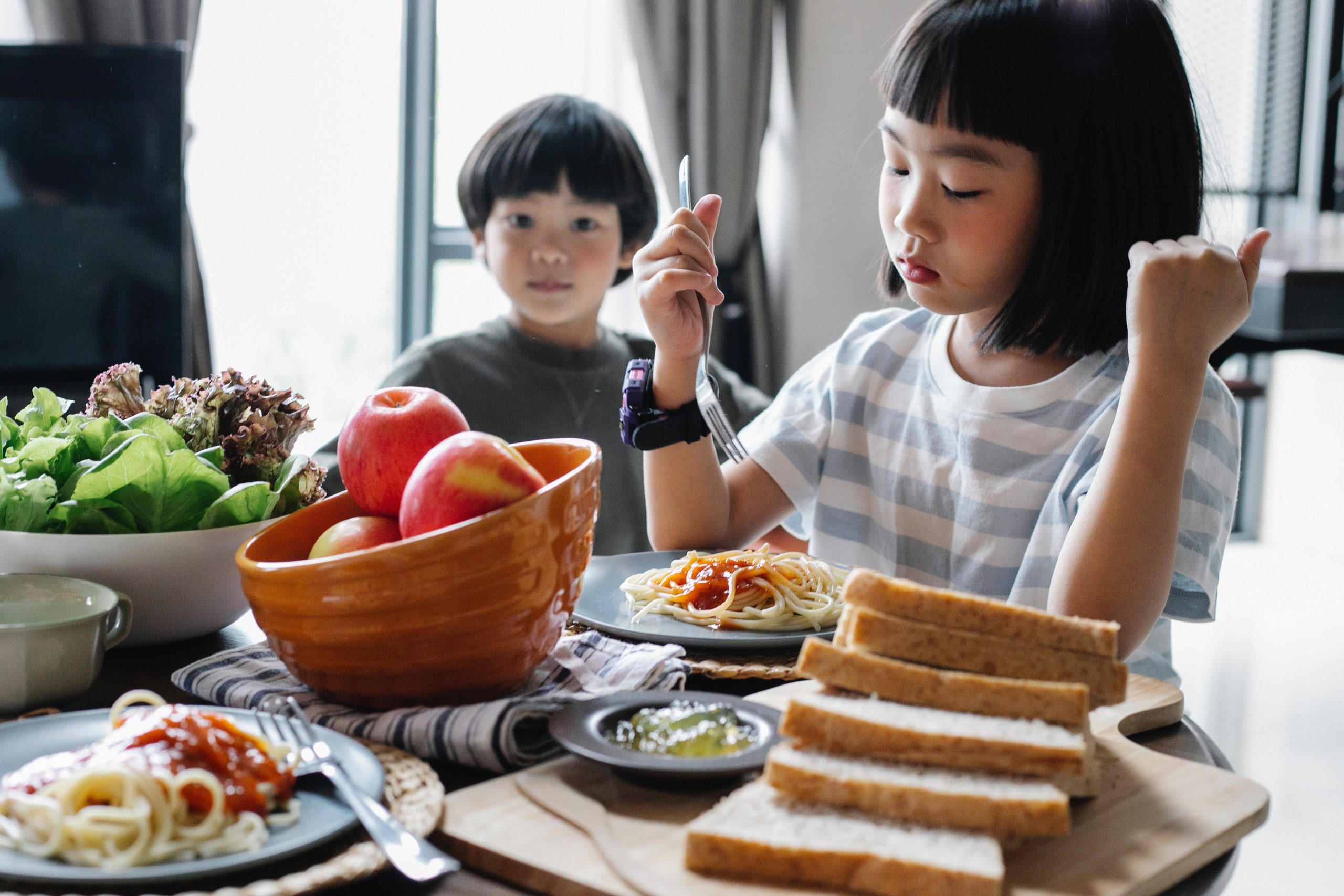Top Image: Alex Green / Pexels
I hated eating breakfast all throughout my schooling years.
It’s because my family takes breakfast seriously. Very much so. When I was still in secondary school, it was a vital part of my household’s daily morning routine.
ADVERTISEMENT
At 5:30 AM, my mother’s alarm would ring—she’d use the bathroom to wash up and be done just in time for when my alarm rang at 5:45 AM. My father uses the bathroom next. My brother, who takes the least time to get ready, washes up last.
I would hear grandma already awake, bustling around the kitchen in the early morning, as she helps our domestic helper prepare breakfast. Back then, all our meals fell under my grandmother’s jurisdiction.

The family would be seated at the dining table at 6:30 AM to eat together before leaving the house for work and school.
My brother and I often complained about breakfast. We don’t have the stomach for the kind of breakfast we have at our house at 6:30 AM in the morning. Unlike my peers, who’d usually make do with a fruit, a glass of Milo, biscuits, or cereal before school, we’d have full-blown, typically Asian dishes, like fishball noodles, laksa, or porridge for breakfast.
It felt like overkill. And definitely felt like overeating.
But no matter how much my brother and I protested, my parents wouldn’t budge. They told us that it was a privilege to have breakfast prepared for us in the morning. We were lucky even to be able to eat together.
The Lost Art of Home Cooking
My family’s strict philosophy when it comes to breakfast extends to all three meals in a day. Our meals are always home-cooked.

Our usual routine is to eat out for lunch on one weekend day or to buy takeaway on the nights my domestic helper takes her break. Delivery meals are even rarer in my household, left as the last option for when we have to cater for guests.
ADVERTISEMENT
Because I grew up eating at home, I had always felt left out when my friends raved about famous eateries or shared their food recommendations. But when I tell people about how I almost exclusively eat home-cooked meals at home, the reaction I usually get is one of envy—or admiration.
I’d get comments like, “That’s so nice; you’re so lucky.” Or “I miss eating home-cooked food.”
Increasingly, it does appear as if home-cooked meals are a thing of the past. A survey quoted in an article by cookbook author and chef Pamelia Chia found that only 22 percent of Singaporeans cook at home daily, compared to those in other cities such as Shanghai and London.
The chef ascribed the phenomenon to a growing culture of eating out and the evolving place of women. She proposes that the affordability of hawker food meant that cooking became the more expensive option for shrinking families. At the same time, as women prioritised careers and education over homemaking, the domestic lifestyle slowly filtered out of focus.

But it was clear that Singaporeans didn’t completely agree. Comments on Reddit pointed out that the real reason that Singaporeans don’t cook anymore is our demanding work culture.
“It’s working 9 AM to 6 PM, reaching home at 7 PM (if lucky and no OT) after being squeezed like onigiri in the train. Who will have the mood to cook?” one commenter shares.
“Cooking isn’t just about making food and eating it. You’ve got to shop for groceries, prepare the ingredients and do cleanup as well, all these, on top of your normal work schedule,” another commenter offers.
It’s short-sighted to think that we all have the same number of hours in a day, as some motivational speakers like to proclaim. Someone with a car has more hours saved than someone who has to take public transport. A parent who can afford daycare has more hours to themself than a parent who has to take care of children after school.
As a student, I didn’t understand that the fact that I had someone preparing breakfast for me meant that I had the luxury of time—something many people want but don’t have.
A New Generation of Breakfast Skippers
When my anti-breakfast protests were shot down by my mother, I held my tongue. I thought that the pro-breakfast argument to just being grateful wasn’t a good enough reason enough to keep up this morning tradition.

Couldn’t we save everyone the trouble if we skip breakfast? We’d have even more time for ourselves. As a sleep-deprived student, I’d appreciate any extra minute to catch more shuteye. I couldn’t understand why my parents would be so insistent on eating breakfast every single day.
It was until I had the chance to live without my parents that I realised how much this practice was ingrained in me.
I stayed in a university hall for a year and spent five months overseas in Hong Kong for exchange. Both times, despite my complaints about breakfast all throughout my secondary school days, I found myself rarely skipping breakfast.
Of course, there were days when I would enjoy the flexibility of not having breakfast. I could finally choose to sleep in or get brunch instead. But most days, breakfast would always be a given. It’d feel wrong if I skipped breakfast. It’d feel like I haven’t quite started my day.
This was not the case for many of my peers. The communal hall, which catered breakfast and dinner at my university hall, was always deserted in the mornings. I would be one out of a handful that would eat breakfast every day. Even in secondary school, many of my friends were already skipping breakfast.

As lives become more hectic and priorities shift, breakfast seems increasingly redundant. In school, my friends would rather catch up on sleep than make time for breakfast. And now that their schedules are more flexible, they would rather sleep in and start the day with lunch.
There are tons of articles out there with reasons why breakfast is the most important meal of the day. But beyond health benefits, I’d like to think that the daily breakfasts were a way my parents ensured that I wouldn’t skip my meals when they wouldn’t be around to enforce it.
Breakfast as a Tradition
To this day, we have breakfast every day at my house. But since my brother and I entered tertiary education, we no longer eat as a family in the mornings because our school schedules have become vastly different.
Despite that, food remains a significant part of my family, we still have home-cooked meals for lunch and dinner at home, and we still try to eat altogether when we’re home.
As our lives only become busier and our schedules continue to clash, there is intention in setting aside time to sit down and eat together. The routine is familiar; it necessitates interaction and time spent together. Even if there’s nothing to say.
It’s fair to say that we have very little in common across generations. The only time that my family sits down and talks together is at the dining table. And the only thing we talk about is food.

My family would talk about how cheap the ingredients were and where they bought them. They would talk about the last time they had eaten it and discuss how it was cooked. My father’s favourite question during dinner was how much I would rate a dish he cooked. My grandmother’s go-to query: “Is it too salty?”
Most of my family’s bonds were built over food. And breakfast played an important role.
As someone who has poor command of dialect languages, I have always felt disconnected from my grandparents. While we both speak basic Mandarin, in many other ways, the generation gap often feels too wide.
But where language fails, food takes its place. I find comfort in the silent afternoons that we sit together, focused on rolling dough for soon kueh (we’d make enough for breakfast for the whole of next week) or folding glutinous rice perfectly into banana leaves.

Breakfast as a Comforting Constant
In a way, I know that the morning breakfasts are how our family bonds. It’s no secret that food is the love language of Asian households, where affection is awkward.
“Have you eaten?” is a universal euphemism for love. Ensuring that we’re full and fed, spending the time to cook, and remembering what dishes we like or don’t is a way of showing love between family members, who might not have much in common aside from blood.
My grandmother likes cooking for me, buying food for me, and making sure I’m fed in the morning. And it’s only right if I learn how to accept it.
Breakfast has remained a constant in my household all these years. Even though our schedules have only gotten busier, and we never have a full table in the mornings anymore, I wake up knowing that I will always have breakfast ready for me.
As a constant in my family’s daily routine, breakfast will continue to play its pivotal role in my life, a privilege that I won’t take for granted.






